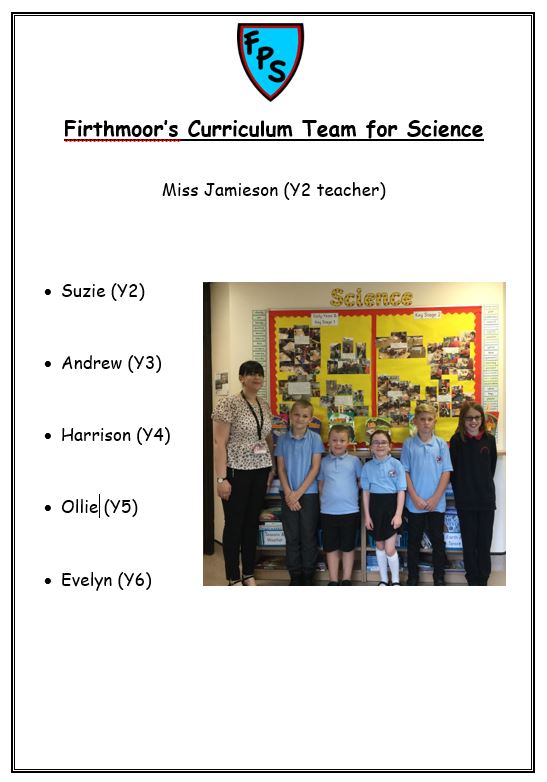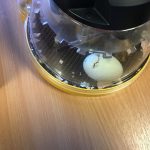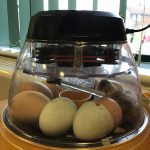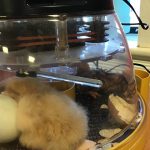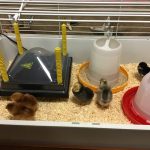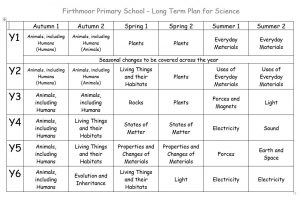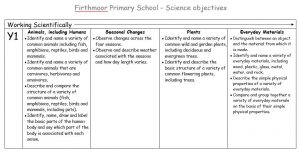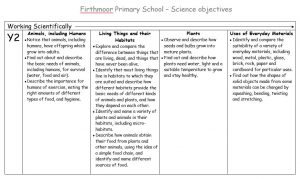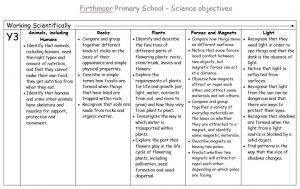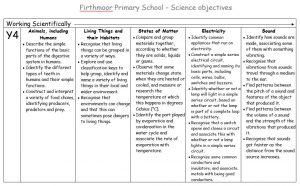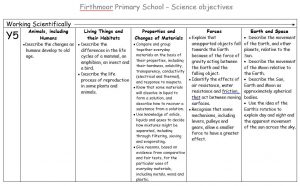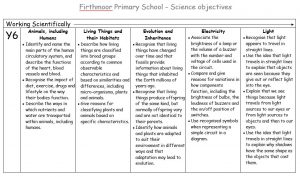Science
Science at Firthmoor Primary School
Listed below are some websites you and your child can use to help support their learning.
www.wowscience.co.uk
www.science-sparks.com
www.whizzpopbang.com/free-resources
www.bbc.co.uk/bitesize/primary
www.nategeokids.com/uk
www.primaryhomeworkhelp.com
www.treetoolsforschools.org.uk/categorymenu/?cat=activities
www.youtube.com/user/maddiemoate
At Firthmoor Primary School, Science is taught following objectives from the National Curriculum framework and is covered through either blocked or weekly lessons. We aim to cover many objectives through practical investigations. Children are encouraged to share their ideas through a range of formats, including writing, drawings, scientific diagrams, tables and charts.
Children have the opportunity to take part in various educational visits linked to Science. Arrangements are made for older pupils to participate in Science lessons at local secondary schools, whilst Year 5 and 6 pupils also benefit from occasional visits from specialist secondary teachers who deliver aspects of Science.
Extra-curricular activities linked to Science have included a Science club to encourage girls’ participation in STEM subjects and challenge/enrichment sessions for higher ability pupils.
Children have access to a number of scientific magazines to further their scientific knowledge, and daily Topic Text sessions are often linked to the Science topics being covered.
Incredible Eggs to Fluffy Chicks
March 2020
As an exciting part of their Science, Reception children took delivery of some eggs and an incubator recently. The eggs have hatched into beautiful fluffy chicks. The chicks took 21 days to hatch and we received them on day 17. We were all very excited to watch the chicks break through the egg shells and peck their way out.
Once hatched, the chicks had to stay in the incubator until their feathers dried out, and they were then transferred into a large pen to forage around in the sawdust. In the pen, there was an artificial ‘mother hen’ for the chicks to go under to keep warm, some seed for them to eat and water.
Many of the pupils and staff have enjoyed visiting the chicks. They will now be collected from us and returned to the farm, where they will be able to roam ‘free’ and lay more incredible eggs for future generations to enjoy the hatching process.
- The first chick makes a tiny crack in it’s shell ready to break free!
- He makes an appearance
- ‘Egging on’ his siblings to hurry and join him
- Waiting to ‘dry out’ to be transferred to their new surroundings
- All the chicks are finally hatched
- All chicks hatched safely and now in the large pen
It is a company limited by guarantee in England and Wales (Registered no:08027879)
Registered address: Ingleby Moor Crescent, Darlington, County Durham DL1 4RW


